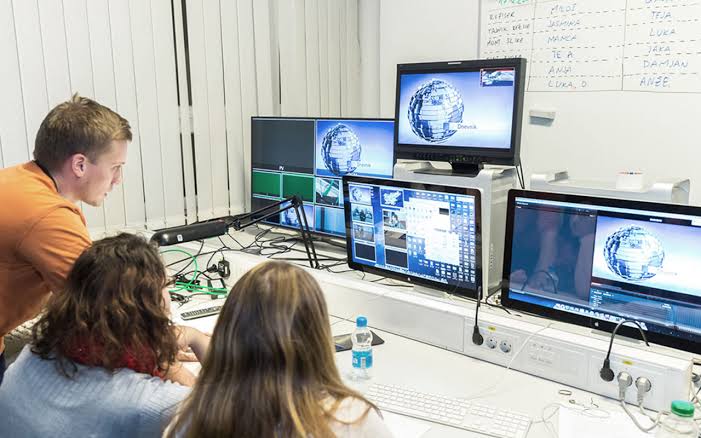
In this post, Hannah Chalmers and Tim Stratford reflect on developing approaches for the assessment of peer contribution, as part of group work activities. They share some ‘top tips’ from their experiences. Hannah holds a Personal Chair of Sustainable Energy Systems, and Tim holds a Personal Chair of Civil Engineering Design. This post is part of the Group Work series.
Our Engineering curriculum includes a broad range of group work activities. These activities are often intended to prepare our students for collaborative work in professional life. This is also reflected in our Engineering Council accreditation requirements. In particular, all graduating students must demonstrate that they are able to “function effectively” in teams while our Masters graduates must also demonstrate that they can “evaluate effectiveness” of a whole team and their own contribution to that team [1].
In practice, some of our students relish the opportunity to engage with people in tackling complex, often open-ended and authentic problems in teams. Others find group work overwhelming and unhelpful. For example, Hughes [2] reports:
“I once asked a group of students why they thought we set them assessed group work. The answer came back immediately:
‘Because you’re evil’.”
One of the biggest challenges in offering group work in our curriculum is developing assessments that provide an authentic experience of collaborative work while adequately reflecting the diverse contributions made by different group members. In our experience, deciding if and how assessment of peer contribution should be used can be particularly challenging. Developing and implementing good practice in this area is, however, essential since, “the success of group work [can] critically depend on a fair and credible assessment of the group process.” [3]
One of the most common concerns raised by our students when we were overseeing Engineering degrees programmes was that some courses allow significantly larger changes in marks than others and that it was not clear to students if/how the assessment of their peers was moderated by academic staff.
Building on this learning from experience, during the 20/21 academic year we contributed to the development of School-level policy and guidance on assessment of peer contribution. This focusses on building understanding among academic colleagues of when it is (and isn’t) appropriate to use assessment of peer contribution for group work activities and ensuring that a clear, consistent approach is used across the School in courses where assessment of peer contribution is appropriate.
For example, in a small group project within a large non-honours course, Hannah does not adjust marks with an assessment of peer contribution. Several students indicated that they were uncomfortable submitting assessments that would lead to their peers losing marks. The administrative burden of processing large amounts of information is also not justified by the small changes in overall course mark that would result from adjustments for this single assignment.
For courses that rely more heavily on group work, we do, however, implement assessment of peer contribution that can lead to students’ marks being adjusted from the group average mark within a limited range, typically no more than +-5%. It is important to note that this is not ‘peer assessment’ (i.e. asking students to grade the work of their peers). Instead, it is an opportunity for students to reflect on and share how each member of their group has contributed to group work.
The approaches that we use, therefore, ask students to indicate qualitatively how each team member has contributed to group work, acknowledging that a broad range of contributions are important for overall success. For example, one student may have taken a lead on technical calculations while another focussed on preparing drawings of key components.
We are also careful to ensure that students understand that the assessment of peer contribution is not intended to hand academic judgement over to the student members of the group. In the project brief, we avoid indicating that the peer contribution will always be used to directly modify the group marks. For example, if the students do not appear to have been sincere in their responses, would we still want to directly modify the group marks algorithmically?
Instead, we let our students know that their reflections on peer contribution will be used to enable the course organiser to judge the individual mark for each student in the group, possibly alongside other indicators of individual performance. For example, we encourage students to keep a basic record of team meetings in longer projects. This is an important habit to develop for the effective functioning of teams, but can also be used to provide additional evidence alongside the experience and observations of the teaching team working with students in the classroom.
Some ‘top tips’ that we have developed from experience include:
- The peer contribution form must be confidential, so that students can inform us if there are significant problems in a group. Students should not be asked to complete the form in the classroom alongside their team members, as they may be under pressure from their other group members.
- In multi-week projects it is a very good idea to ask students to complete a peer contribution form part way through the project (as well as at the end). This allows group working issues to be surfaced whilst there is still time to address them with the group.
- All students should be encouraged to submit a form, because even if they think the group worked well together, another team member might think differently. If there is a group that has not worked well together and you have missing forms, you need to assume that the missing students thought the group worked well, but it would be better to have a complete set of forms.
Finally, it is essential to remember that peer contribution is not a mechanism for dealing with the assessment of a student who fails to contribute to group work. Such non-engagement should be dealt with by the teaching team, not by student members of the group. Students carrying out group work should be informed that they should raise concerns, at the earliest opportunity, with the course organiser if they feel that a member of the group is not contributing. It is then the responsibility of the course organiser to investigate their concerns. This is particularly important in safeguarding the welfare of all students.
References
[1] Engineering Council (2022) AHEP, fourth edition. Available online: https://www.engc.org.uk/standards-guidance/standards/accreditation-of-higher-education-programmes-ahep/fourth-edition-implemented-by-31-december-2021/ (last accessed 5th April 2024) [2] Hughes, G. (2020) Be Well, Learn Well: Improve Your Wellbeing and Academic Performance. London: Bloomsbury Publishing Plc. [3] X-H Jin (2012) A comparative study of effectiveness of peer assessment of individuals’ contributions to group projects in undergraduate construction management core units, Assessment & Evaluation in Higher Education, 37:5, 577-589, https://doi.org/10.1080/02602938.2011.557147 Hannah Chalmers
Hannah Chalmers
Prof. Hannah Chalmers holds a Personal Chair of Sustainable Energy Systems and is currently an academic co-lead for the implementation of the Skills for Success Framework. She is a Senior Fellow of the Higher Education Academy and has experience of facilitating group work in the Engineering curriculum with non-Honours, Honours and MSc students.
 Tim Stratford
Tim Stratford
Prof. Tim Stratford holds a Personal Chair of Civil Engineering Design. He teaches across a thread of engineering design courses that develop students’ abilities with creativity, contradiction, compromise, challenge, and communication (as well as calculations).

